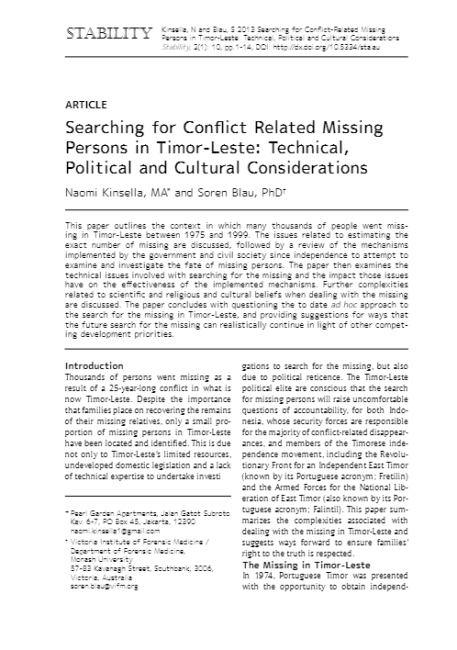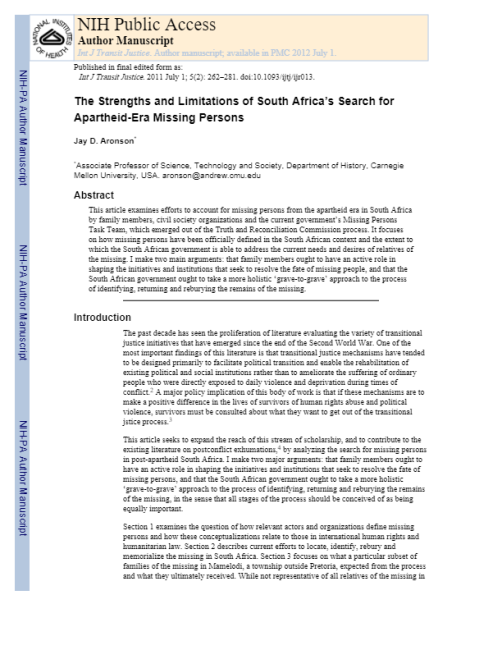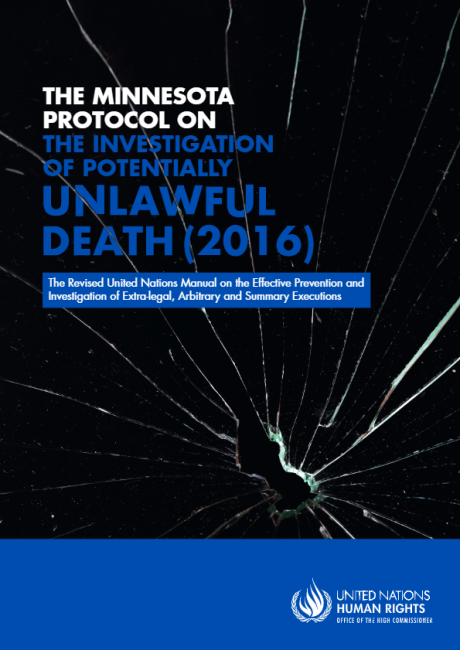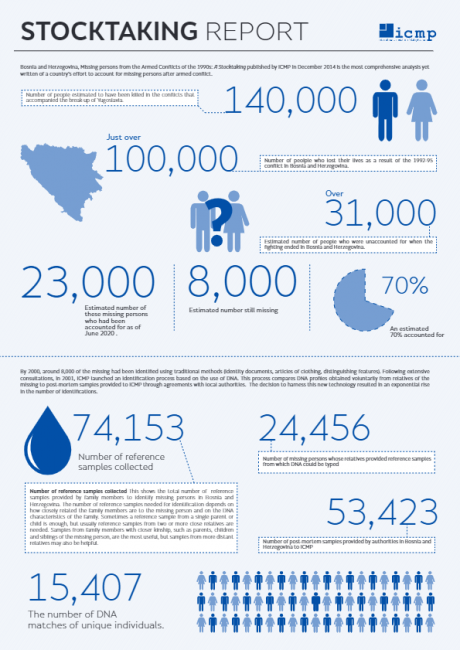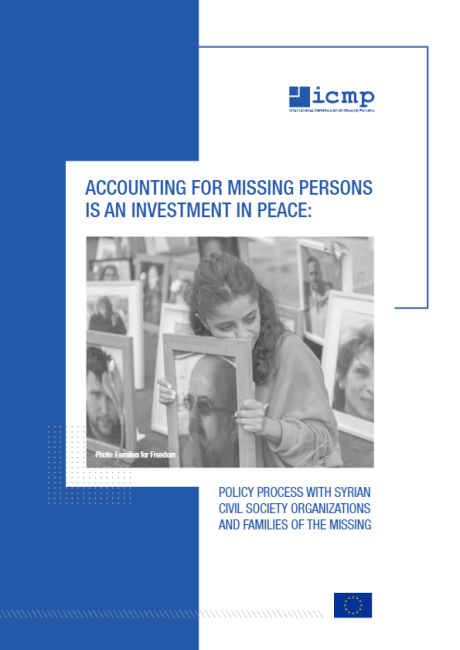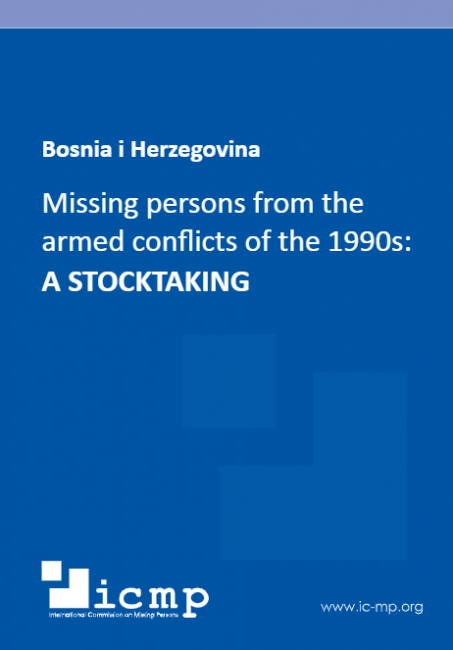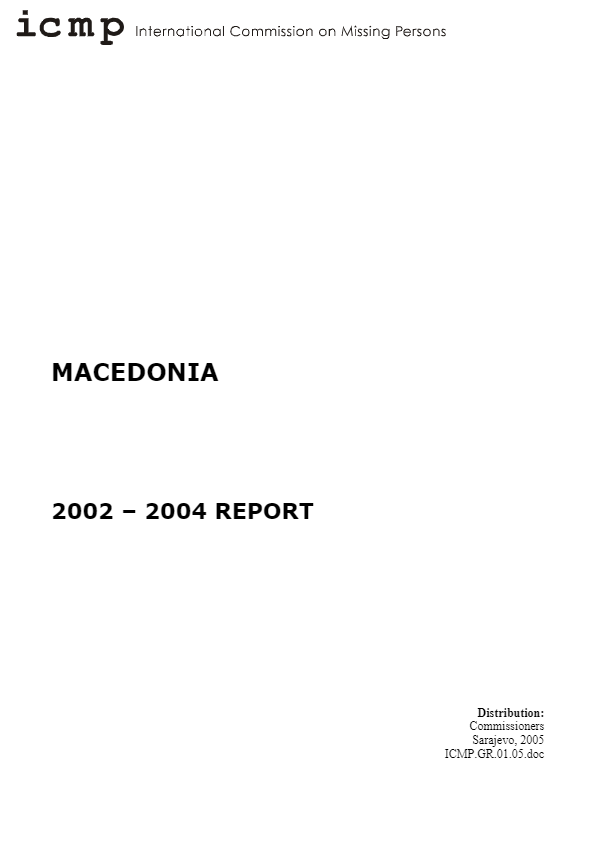
Macedonia: 2002-2004 Report
In July 2002, the late President of Macedonia, Boris Trajkovski and the European Union Special Representative in Skopje, Alain LeRoy, invited the International Commission on Missing Persons (ICMP) to contribute to the process of determining the fate and whereabouts of persons missing as a result of the 2001 crisis in the former Yugoslav Republic of Macedonia. Both President Trajkovski and Ambassador LeRoy requested that ICMP conduct such work in light of the findings of the Commission on Kidnapped and Other Missing Persons (CKMP), which had conducted independent investigations, culminating in two reports, one in February 2002 and one in July 2002. However, without executive power, the CKMP was limited in its ability to go further. Although there were only 22 known cases of disappearances, the fate of the missing had proven to be an impediment to building a viable political process through the implementation of the Ohrid Agreement and an obstacle to reconciliation following the violence of the 2001 crisis. With the assistance of ICMP, the Government has legally identified nine of the 22 persons, with another two to four exhumations of mortal remains predicted for 2005. Blood samples have been collected from all families of the missing residing within the country.


